If you found this post as you’re wondering whether to make the move to Cyprus or not, I’m happy to share my 6.5 years worth of experiences, joys and misfortunes (I will try to focus on the first two).
Everyone is different and this is not meant to be a suit-all guide for moving to Cyprus or deal with all the technicalities involved. Your circumstances will be very different to mine – this includes your work, family situation, attitude towards change and many other things.
Take from this what you consider important and what you want to achieve with your stay in Cyprus. Most of all – manage your expectations and you would be much happier dealing with some of the unexpected consequences of living in Cyprus.
Be prepared to face challenges, both cultural, language and bias towards foreigners. At the same time, embrace the friendly and welcoming nature of locals, amazing fresh food, stunning nature and a more relaxed attitude towards life in general.
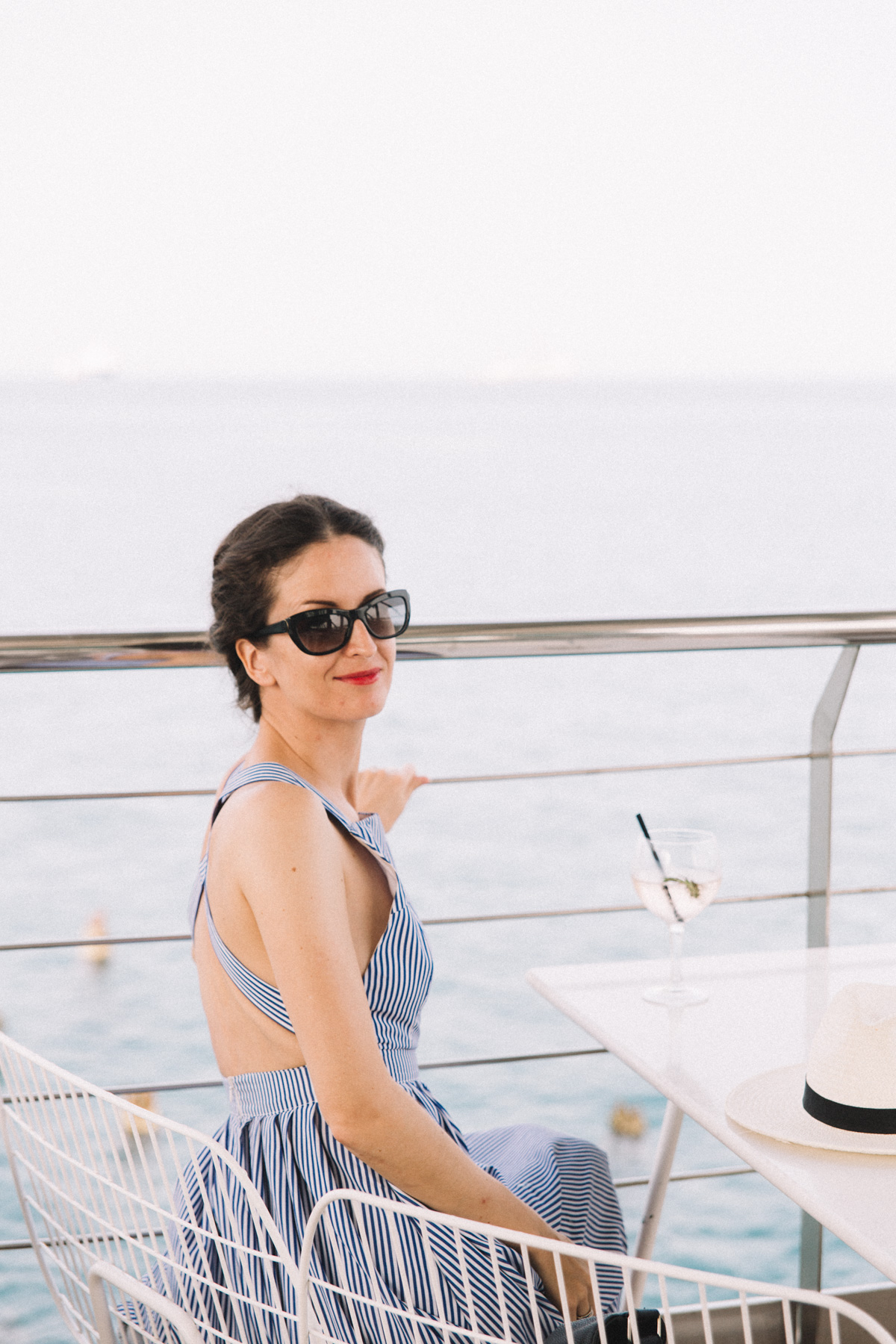
I have spent numerous wine-infused nights rewriting this so I don’t sound like an old retired lady who’s only accomplishment in life was to live on a damn island. I hope by the end of reading this, you will feel that you understand the challenges of living on the island a bit better and are prepared to face the unexpected hurdles on your way.
With that in mind, let’s crack on.
Here’s what I consider most important life lessons, courtesy of living in Cyprus.
Comparisons with Home
No matter where you come from, you will end up comparing Cyprus to where you grew up or lived. Those comparisons can vary on a very large scale.
For my husband, who grew up in law abiding Finland, the anarchy when it comes to law and enforcement (especially traffic law) was completely liberating. He appreciated the complete lack of courtesy when it comes to parking, obeying the traffic lights and the chaos called road traffic.
I grew up in Slovakia where I never felt too oppressed, so I only expected the basic services to work and to get something as silly as maternity pay and child benefits (which I later found out I can’t get even though I’ve worked my whole life).
I studied law so I have deep respect towards a system of rules that guides citizens to live together in a harmony, respecting the fact that we’re a part of larger community. I had to throw that out of the window in Cyprus.
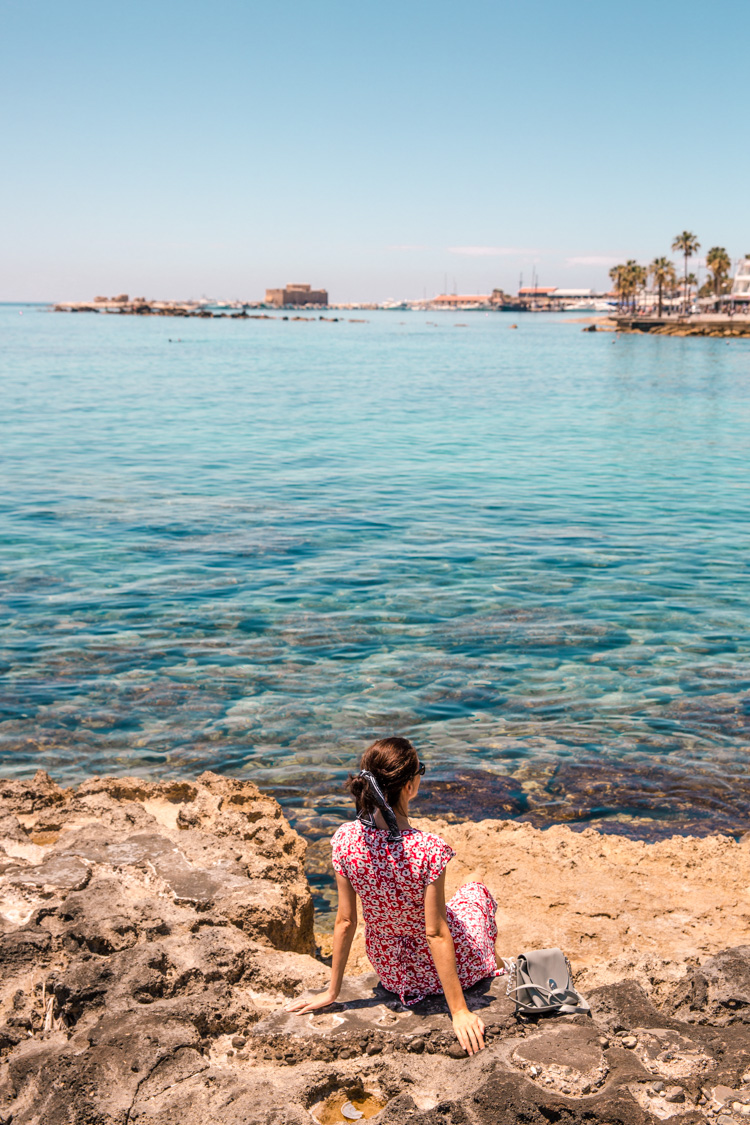
If you never lived in a Mediterranean country this would be my first advice: DO NO COMPARE. The Mediterranean culture is completely different and you will waste plenty of mental reserves trying to justify it. They have a more relaxed attitude to life and that translated to all aspects of life, not just those that you happen to admire (2 hour frappe lunch breaks on beach).
It took me about 2 years to stop comparing and complaining after I run out of steam.
(PS – I’m still doing it in a small scale, as evidenced by this post)
You need to let go of what you were used to, how fast things were done, with what attitude and professionalism. You need to learn to accept delays and complications as part of your life.
You need to learn to expect that people won’t do their job properly, you won’t get proper customer service, you won’t get what you were promised and that you get different information from different people (including those working in government offices).
These things don’t make your life any worse, you only make it worse by comparing it to what you’ve known before. The sunshine helps, and people are generally really relaxed and friendly. Nobody will shout at you. You walk out of the shitty office to a glorious sunny day with blue sky. Anything is easier to get through when you feel like you only came for a short holiday.
Even if you arrive keeping everything above in mind, it will still drive you mad for a while. Have a bottle of wine at hand and remind yourself that you can learn something from the locals – chill and take it easy. In most cases, nothing will run away from you and you will find yourself growing into a more relaxed and chilled person.
Making Friends
I’m very grateful I found a community of Slovak-Cypriots who welcomed me and my husband with open arms (tracked them down in a Facebook group – if you search around you will find expats in various groups). Without them, I doubt I would have much social life.
The trouble is, the expat community in Cyprus is pretty much divided in a few groups: retired British couples (mostly in Paphos), Russian expats (who mostly speak no word of English, around Limassol) and seasonal expats who come to the island only to work in tourism industry in the summer.
Finding locals to hang out with is very hard because even the young Cypriot people don’t speak too much English (or don’t want to) and I’ve never had to guts to try my Greek skills with them, even though I had private lessons for nearly 2 years.
If you happened to work in a local office you’re more likely to make friends with colleagues. I worked from home with my husband so our social connections were pretty limited.
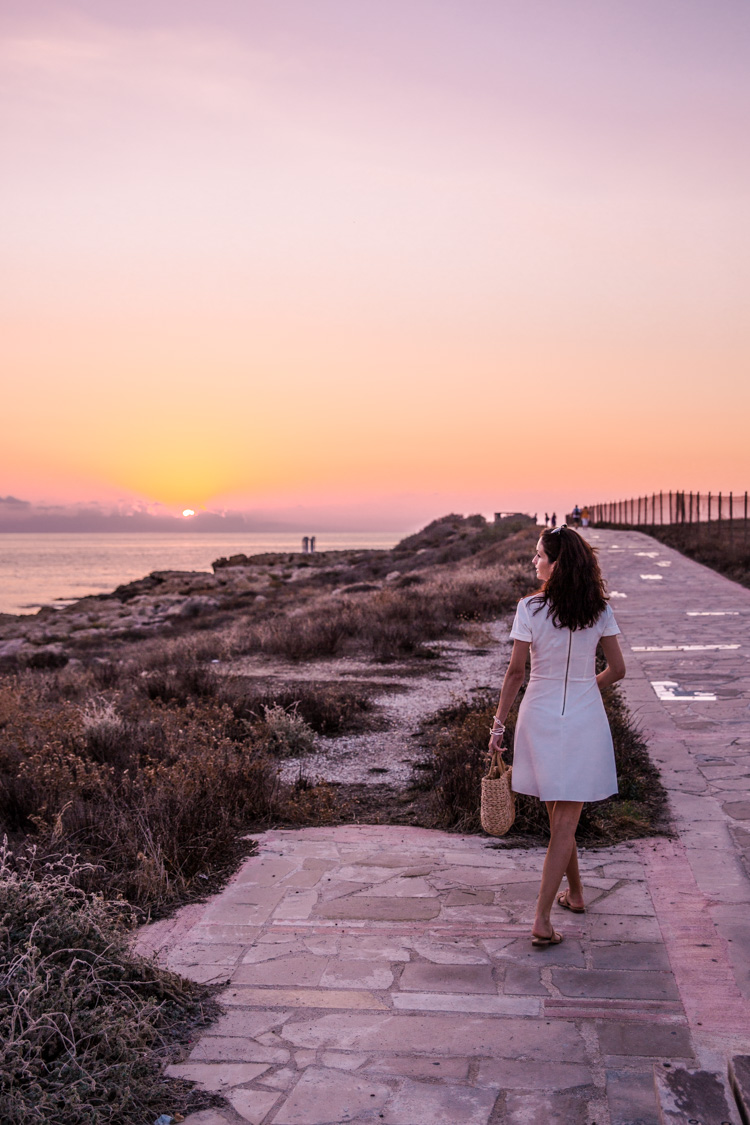
Overall I think it takes a lot more effort to make friends since most of the nice people you meet are here only for holiday and will be gone next week. A lot of the lovely people I met over the years also moved away from the island and it seems to be a growing trend (not much of my original group is left on the island).
If you’re coming with a partner, be prepared to spend a lot of time on your own at the beginning. It will test your relationship and you might want to drown each other in the sea – not recommended.
If you’re working for a local company or even in a hotel, you will have more chances to make friends.
Another route is finding friends through schools / language classes. My son started nursery when he was 3 but the interactions with parents were pretty limited and it seemed like everyone already had their own tight-knit group of friends.
In the end we managed to find a few very good friends for which I’m very grateful and we’re still in touch today.
Bottom line, be prepared to go the extra mile to make meaningful connections that will last.
Working in Cyprus
This is a topic I’m not an expert on since I was a freelancer for a company outside of Cyprus – for which I’m eternally grateful.
From what I hear most people tend to get a job in the tourism industry (hotels, restaurants etc) and the pay is not great, so are the working conditions. Again – it depends where you come from, and what would you like to achieve with your job.
There are a lot of Forex companies in Cyprus who are happy to employ you even without knowledge of Greek. For most other jobs, you will need basic knowledge of Greek and Russian is mostly appreciated.
There are a lot of Chinese & Russian property buyers who come to invest in pursuit of buying their way into European citizenship. So if you speak any of those two languages with English, you stand a good chance of getting a job at a property agency.
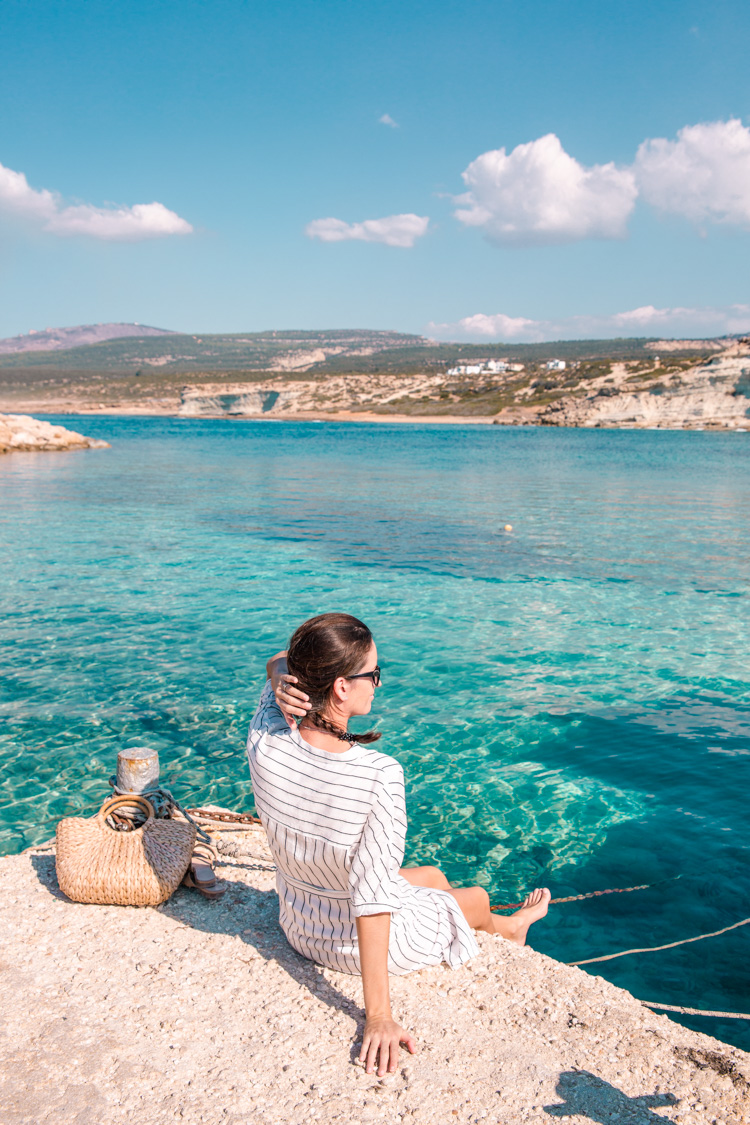
The usual employment laws are applicable, where your employee will pay your social contributions. In case they force you go to as self-employed, beware – the social security payments are not based on your real income, but presumed income levels and you can end up spending a lot of money and getting very little in return (I will prepare a blog post about that as it’s fairly poorly explained and documented online).
At the same time, I have to say that working in Cyprus is probably a lot more relaxed than work in an office in London. You get generous siesta allowance. You can pop out for a frappe with Yiorgos and return 2 hours later and nobody would say a word.
Even the staff of Paphos Town Hall were caught gambling during the business hours and everyone was outraged that the mayor made a big deal out of it.
Family Life
Cypriots LOVE kids. All shapes, sizes & attitudes. Rude, polite and plain evil possesed.
Best displayed in restaurants for public admiration.
In Cyprus you DO NOT make a comment on other kids in restaurants or public space. It’s considered rude.
Like if they throw spaghetti in your face, you will smile and say ‘what a cute little [insert appropriate adjective]’. That’s how much they love kids, I completely get that.
On the other hand, they let them grow wild & spoil them.
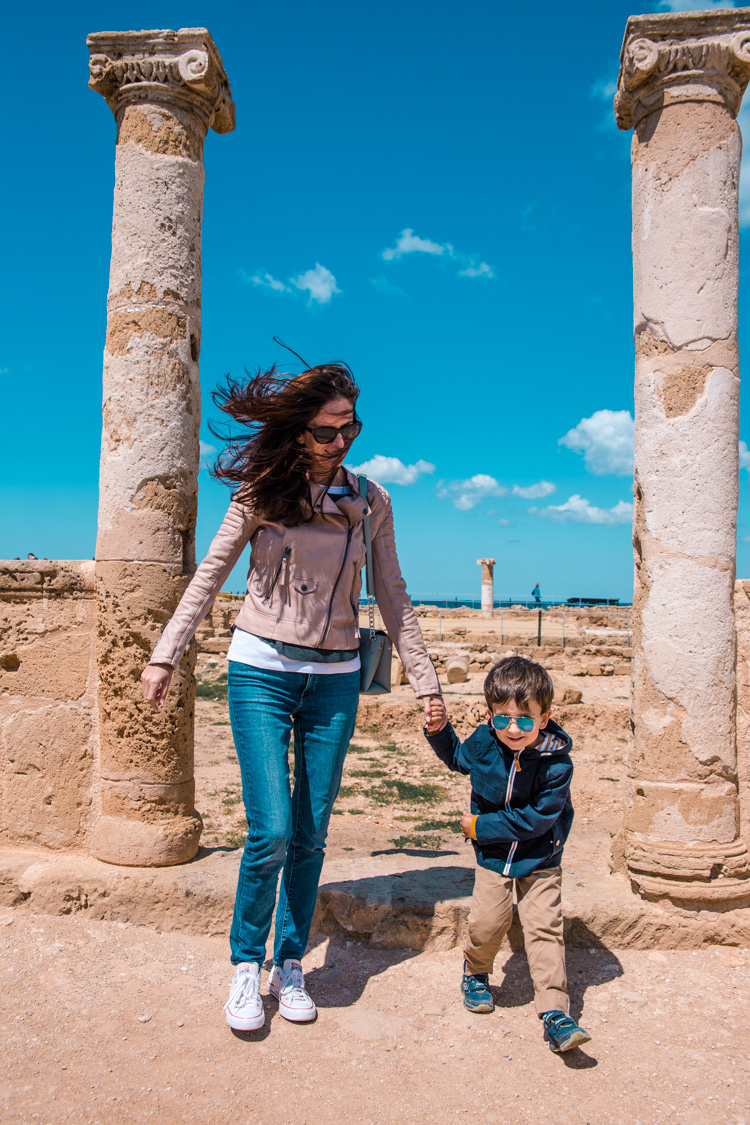
I don’t know what’s better. I’ve seen both sides of the puzzle. Families on holidays with their kids glued to phone or Ipad during dinners or the locals who let their kids to be who they are – kids.
My son got freebies everywhere he went. Cookies, fruit & snacks from the bus driver, free food from the kiosk owner, gifts from the supermarket lady and free food in the restaurants. You know, just because he is charming like his mother (ehm….).
The nursery is when life got interesting. I had no idea that pulling a screaming kid off your leg is educating him about setting proper boundaries and preparing him for adult life. I was more traumatized than that 3 year old kid.
There are plenty of government nurseries but if you want any English one, those will set you back on average around 200 eur. This was in Paphos, in Limassol the prices are much higher (300eur+).
As my son was closing in the legal age to enter school (5y), it was honestly one of the main triggers to leave the island as I didnt want him to go to school there.
Not sure how much I can comment on family life as we didn’t have any grandparents living on the island, like most locals do (or those married to locals). We had a live-in aupair who took care of our son until 6pm when we finished work and then provided once a week babysitting when we went out for drinks/dinner.
From what I get, most kids spend the afternoons in after-school care until the parents pick them up and take them home.
Housing & Living Standards in Cyprus
I moved to Cyprus in January 2013. I remember it like it was yesterday.
It was a crisp evening of 1st January and I was amazed I didn’t have to wear my winter jacket as it was 18C outside. I stayed in a rented apartment with my then boyfriend (now husband) until the next morning when we picked up the keys to our villa.
The villa was at the edge of Kissonerga village, with panoramatic 180C sea views, great size pool, small garden, 3 bedrooms & large open space living room and kitchen where you can do dance lessons. All for 900 eur per month.
The house was a love at first sight, especially considering I moved here from a shitty 1 bed flat in Bricklane, London, where we (my husband) killed around 11 mouses (God bless their furry soul).
The landlord was really cool local doctor who cater for every wish we had and we couldn’t be happier. That was until we realized what it means to endure the Cypriot winter with no heating. Think Game of Thrones – Winter is Coming theme song. That bad.
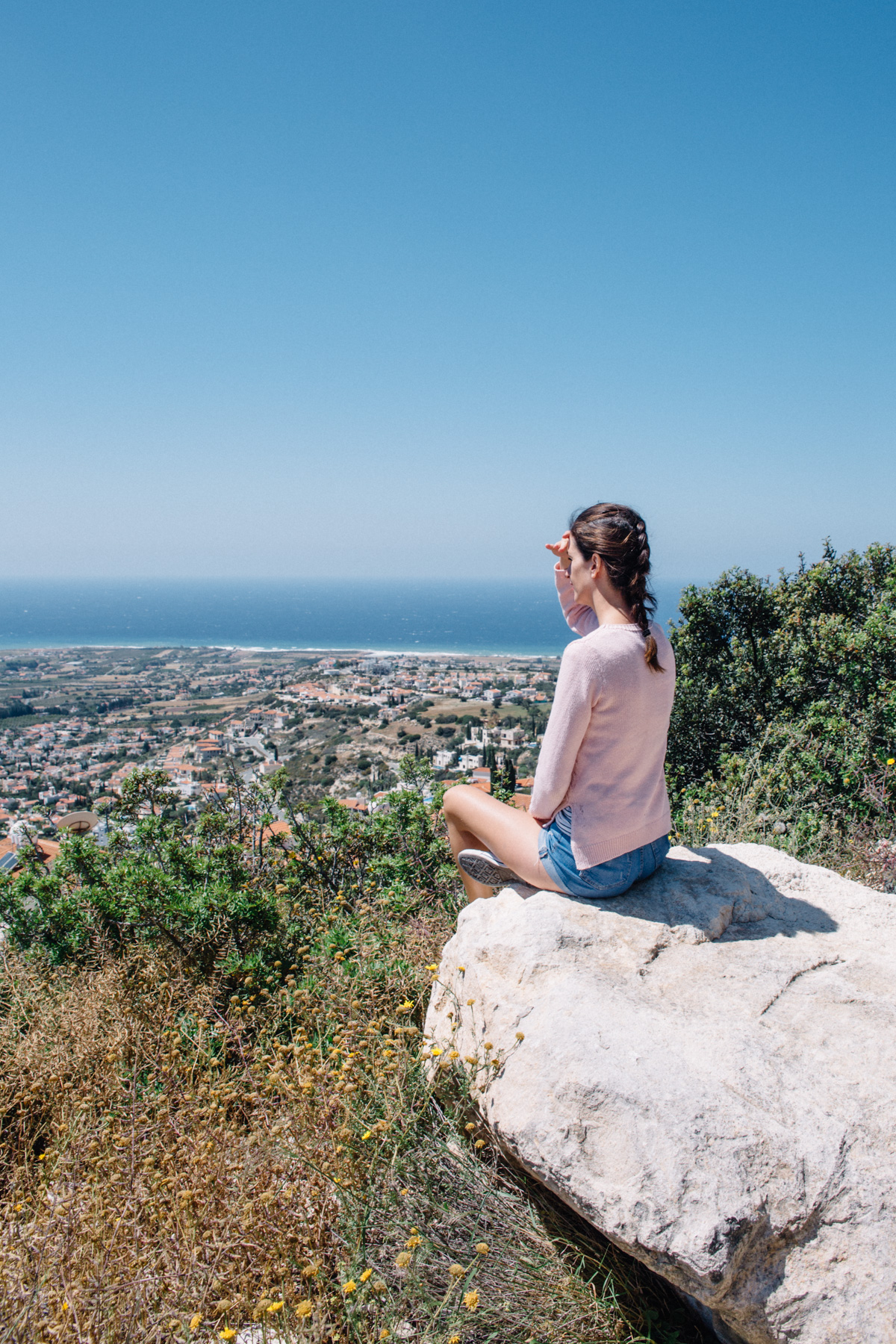
We survived the first few years until my son arrived in January 2015 and the floor to roof mold covered walls convinced me it might not be the best place to raise a newborn. That followed another 3+ years of moves around the island, where we never felt quite at home like in the first house.
If you’re looking to rent in Cyprus, know your numbers and be careful. There are a lot of old/new buildings with non-existent insulation and heating. They will expect you to be ok with aircon during the winter.
Also if you’re working from home like I did, expect huge bills in summer and winter as you don’t want to freeze or evaporate in summer. Cyprus has one of the most expensive electricity rates in Europe. If you’re working from home, find a small room in the house that’s easy to keep cool/warm.
The rental prices tend to be cheapest in Paphos and Larnaca, with Limassol being the most expensive one as it’s the one that provides the most work opportunities.
Nicosia was always a bit of a puzzle for me – I never understood the appeal of living there as to me it seemed like a concrete chaotic jungle. At the same time, if you live on an island, wouldn’t you want to live close to the sea? There are plenty of work opportunities in Nicosia too, all of the Embassies are located here.
I can tell you a lot of hilarious stories involving renting places in Cyprus, but that might scare you off and this whole article will loose it’s plot, so we better move on.
I will do a more practical follow up on rental contract and practical information so you don’t burn your own fingers same way I did =)
Dealing with Authorities
Ah, something close to my heart. Even after those years, this topic tends to raise my blood pressure.
At the beginning, everything seemed easy – my employer filed all the paperwork and we only told the local council in the village that we moved there. After that I tried to open a bank account which ended up being a quest taking over 3 months.
The real fun started later. When I became self-employed, they wanted a proof that I’m earning money and they based my social contributions on ‘presumed’ earnings for my profession. I told them I’m a secretary, but in reality I could have been a brain surgeon or a rocket scientist and they wouldn’t have known any better. Because I needed to be fit into a table of professions and those were rather limited.
Even if you dont make a penny from your profession, you have to make those contributions otherwise they will drag you to court. You can ask for them to be lowered in the next year based on your tax return.
When I planned my wedding in Cyprus, the legal paperwork took me 6 months to prepare (translations, getting original papers from Finland & Slovakia court stamped). We opted for a lovely Evangelic priest and ceremony outside of any religious establishment. The usual drill in Cyprus is a ceremony in church with Orthodox priest which is considered also legal.
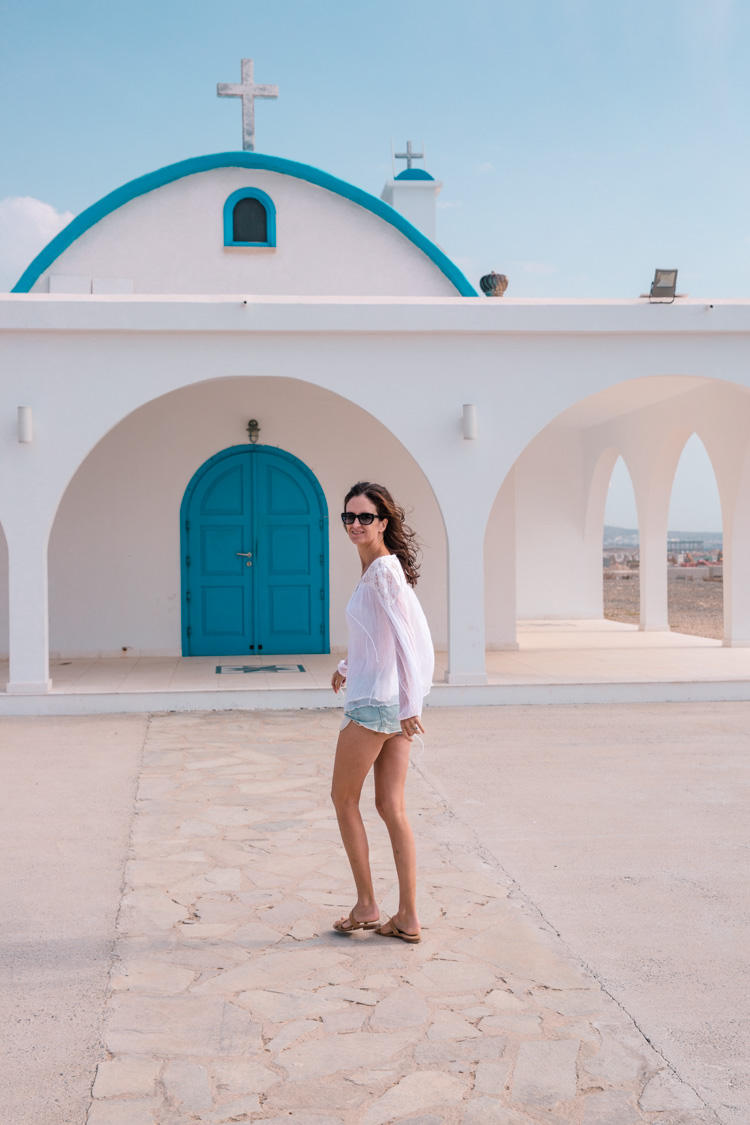
Only other ceremony that’s considered legal was the British Catholic at the angelic price of 700 eur for 20 mins appearance. If you think that gets you a priest arriving on a helicopter, you’re wrong.
After I got married I had to change my ‘Alien Registration’. Yes, you have to register as an ‘Alien’ even as a member of the EU. I did this too late as nobody informed me of the obligation. When I filed the papers, waited 3 weeks for the appointment (the lady at reception had a PHYSICAL BOOK as diary to book appointments!!!! ) and arrived with my town hall stamped marriage licence.
Lady in the office looks me in the eye and tells me I need to bring my husband as a proof that I got married. Because you know, anyone can forge a town hall marriage certificate. At that point my mentality was so adjusted that I only laughed and couldn’t wait to tell everyone about it. Waited another 3 weeks to drag my husband there, waiving his hand with his wedding ring like royalty.
The bottom line – if you have anything to do with the offices and administration in Cyprus, arm yourself with a high dose of skepticism and patience. Don’t expect to get your answers in first round. Don’t expect to get it done on spot. Don’t expect for public servants to answer their phones or do their jobs.
That way you can never be dissapointed and feel like a local for hacking the system before it drains your mental reserves.
Health Care in Cyprus
This is a rather complicated and lenghty topic, but I will try to at least give you a brief recap and will get into this further in another blog post.
Basically, until 2019 there was NO public health care system in Cyprus. If you earned less than 15k a year (proved with tax return), you were entitled to so called ‘medical card’ which gives you reduced rates on national hospital treatments. Usually the elderly and students would qualify for this.
I couldn’t get it and my husband didn’t qualify either. It also meant that when I went to ask for European Health Insurance Card (for our travels abroad) they laughed in my face and told me I won’t get one if I don’t have medical card.
Roughly mid 2019 they introduced the first trial version of medical system, where you and the employee pay into a public fund and you’re entitled to free health care. What it means in reality is that you have to register with a specific doctor who has a limited capacity and only if you go and see you registered doctor your visit is free. The biggest benefit is that you can also see doctors from private hospitals free of charge if you’re registered with them.
For us, we ended up paying for private medical insurance throughout our stay in Cyprus. Even though it’s not cheap, it also doesn’t cover everything (more on that later).

If you’re coming to Cyprus, make sure you have at least European Health Insurance card or get yourself travel insurance to cover the first few months of your stay before you get registered in the system.
Fitness & Outdoor Life
It’s a common misconception that living on an island means endless nights and weekends at the beach, living the time of your life.
At most times, especially in summer, you’re so fed up with the crowds of tourists and overflowing beaches that you struggle to find a place for yourself to enjoy a piece of the nature and rural life that you so longed for.
Before I moved to Cyprus, I imagined myself having early run on the beach and swim in the sea before work, while spending every evening admiring each sunset & toasting to another wonderful day.
A lot of locals, especially the older generation still do it and I really admire that.
In total, I think I did that once in six years (morning run). Cyprus is blessed with gorgeous weather but it’s also a curse – in summer it’s too hot to do most exercises outside, both mornings and evenings. I did enjoy my evening walks around the coast, but no serious jogging. I did yoga and my husband enjoyed going to the gym where he made some friends.
I loved the outdoor life in the off-season months – when it’s not too hot, not busy and you can feel like the island is at peace again.
Sorry this was a bit of a novel, but I tried to cover all bases! I will continue these expat series for the next few weeks but if you have a specific question feel free to leave a comment below!
